Humanity depends on caring for each other, cooperation and community in order to survive on Planet Earth. In this respect we have a lot to learn from honeybees. For bees, the greater good of the hive is their focus.
Bees are an integral part of our survival plan, for without them we will be missing out on many of the healthiest foods we consume. Vegetables and fruits that grow on trees and in the earth. From almonds and apples to cucumbers, onions and tomatoes. These and so many more fresh foods rely on bees for pollination.
Without bees we would go hungry. They are a major factor in our ecological sustainability. Honeybees can rarely be found living in the wild these days. They mostly rely on beehives provided by beekeepers, and the primary purpose of keeping bees is to pollinate crops and relieve them of their honey.
It is in our best interests as a species to protect bees and make sure they are thriving. They have had some critical years lately, where they disappeared at alarming rates. The more people that take up conscientious backyard beekeeping, the better chances honeybees have to get strong and survive.
Honey was revered by ancient humanity, and recently modern science has caught up to being able to prove honey is useful for immunotherapy, wound care, and it is a natural antiseptic, antibiotic, skin balm and is even great for treating arthritis. Legendary ruler of ancient Egypt, Cleopatra, was famous for lounging in skin beautifying milk and honey baths.
Honey is not just another sugar or sweetener and using honey in baked goods can reduce the total sugar used by 25%. You can adapt old recipes by exchanging sugar for honey. If the recipe calls for more than one cup of sugar only exchange it for 1 cup of honey, and you will be pleasantly surprised.
Buying your honey locally helps small cottage industries, builds community ties and supports those who selflessly raise bees and bottle honey for your health and enjoyment. Local honey also boosts wellness by offering nutritional benefits and healthy properties.
One of the biggest benefits of local honey is that it helps control seasonal allergies by easing the symptoms when you consistently consume a tablespoon of real raw honey twice daily. This is because the same allergens that trigger your allergic reaction are also in the local raw honey. Ingesting this honey is like taking allergy shots. It even strengthens the immune system and is an effective and natural immunotherapy.
Since natural raw honey is anti-microbial it kills bacteria when it coats your throat if you are developing a scratchy throat or suffering from a cough or cold. Your body will heal, and the honey will soothe your throat.
It also contains prebiotics and probiotics that help with your digestive system and eases inflammation so if you get a stomach flu it can sooth your stomach and help relieve some pain. Let it be easy… stir a spoonful into hot tea. It’s delicious in a green smoothie or mixed into a Greek yogurt.
Honey is rich with amino acids, phytonutrients, minerals and vitamins. People have excellent results when they use honey on their skin, especially if it is crystallized. It is an all-natural anti-bacterial solution and a gentle exfoliator.
The move to buy local products is growing stronger around the world and this community-centered living makes it easier to buy honey from farmers near you. This raises your chances of getting unadulterated pure, high-quality honey instead of imported mass-produced, diluted and genetically modified honey that may even be toxic.
Grow your community-mindedness. Grow local, buy local and consume local. Know what you are putting into your body. Support local beekeepers and ask about their bees. What sorts of flowers do their bees forage on? How does lavender honey taste compared to orange blossom honey? Accessing such knowledge adds to the story that goes with your honey and enriches your experience even more.
So, let’s help the sweet honeybees stay alive and thrive. Let’s keep them local, pollinating nearby, instead of out on the road being trucked around the country. That is a hard life on the bees. Let’s eliminate the poisons and toxins that kill them. Make sure such poisons are not used in your garden or on the foods and honey you consume.
Stand for healthy bees and a healthy you.
Is honey part of your daily life?
